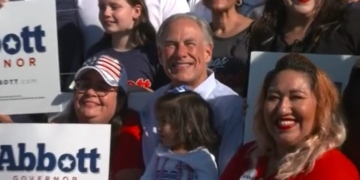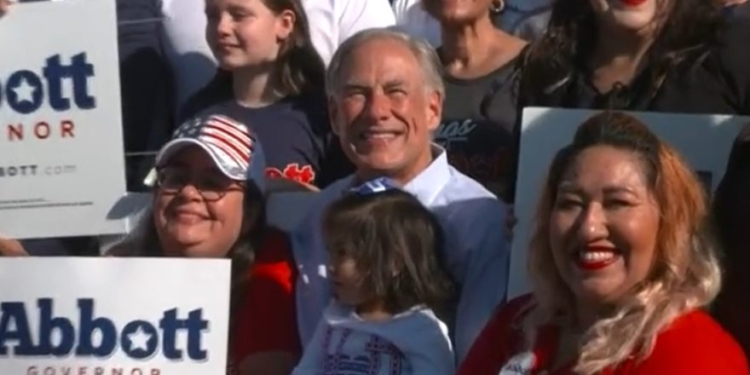Texas voters made their voices heard at the ballot box last week by ousting from the state House of Representatives Republicans who had voted with Democrats to block school choice for families in the Lone Star State.
The Texas House is now positioned to successfully pass a sweeping school-choice bill on behalf of Texas families in the 2025 legislative session.
On May 28 on X, Texas Gov. Greg Abbott announced: “The Texas legislature now has enough votes to pass School Choice.” The governor’s remarks referenced the results of the GOP primary elections in March and the primary runoff election that day, which were a clear indicator that Texans want educational freedom.
Not only will anti-school-choice representatives be removed from office at the end of this term, but strong supporters of choice were victorious.
More specifically, in the March primary election, six representatives who voted against school choice in last year’s special session were defeated (Steve Allison of San Antonio, Ernest Bailes of Shepherd, Travis Clardy of Nacogdoches, Glenn Rogers of Graford, Hugh Shine of Temple and Reggie Smith of Sherman).
In last week’s runoff election, three other anti-school-choice representatives lost their seats (Dewayne Burns of Cleburne, Justin Holland of Rockwall, and John Kuempel of Seguin).
To add to the numbers, five additional anti-school-choice representatives wisely opted not to seek reelection (Kyle Kacal of College Station, Andrew Murr of Junction, Four Price of Amarillo, John Raney of College Station, and Ed Thompson of Pearland). Five pro-school-choice candidates won those open-seat races.
In total, pro-school choice advocates picked up 14 seats in the Texas House of Representatives. That results in a 28-point positive swing for school choice.
Last year, Gov. Abbott continued to call the legislature back for special sessions with a commitment to passing a universal education savings account that would provide parents with their children’s education funds for the learning avenue of their choice. Despite the longstanding Republican trifecta, Texas has been void of any school-choice programs that allowed students to learn outside of the public school system.
During the third special session in October, the Senate passed Senate Bill 1, known as the Texas Education Freedom Act, which would provide parents with an $8,000 education savings account per child to allocate to the educational provider of their choice. The House never voted on the bill, as was the case with other similar school choice bills.
In November, during the fourth special legislative session, House Bill 1 was put forth. The education spending bill included an approximate $10,500 education savings account, with all children eligible statewide.
During the session, Rep. John Raney offered an amendment to House Bill 1, removing the school-choice provision from the education spending bill. The House voted 84-63 in favor of the amendment.
The 21-point margin came as 21 Republican representatives from rural areas voted against giving Texas families educational freedom. This was the first time in decades a school-choice proposal was brought for a vote in the Texas House.
Not giving up, Gov. Abbott and allies set to work exposing the Republican representatives who voted against school choice and supporting candidates to replace them who would put the families of their constituents first.
The strategy was resoundingly successful. Texas is now ready to make history in 2025 by granting all of the more than 5.5 million students statewide — which comprises 10% of all K-12 students in the country — with educational freedom.
Dr. Keri D. Ingraham is a Senior Fellow at Discovery Institute, Director of the American Center for Transforming Education, and a Senior Fellow at Independent Women’s Voice.
The views and opinions expressed in this commentary are those of the author and do not reflect the official position of the Daily Caller News Foundation.
(Featured Image Media Credit: Screen Capture/CSPAN)
All content created by the Daily Caller News Foundation, an independent and nonpartisan newswire service, is available without charge to any legitimate news publisher that can provide a large audience. All republished articles must include our logo, our reporter’s byline and their DCNF affiliation. For any questions about our guidelines or partnering with us, please contact [email protected].



























 Continue with Google
Continue with Google